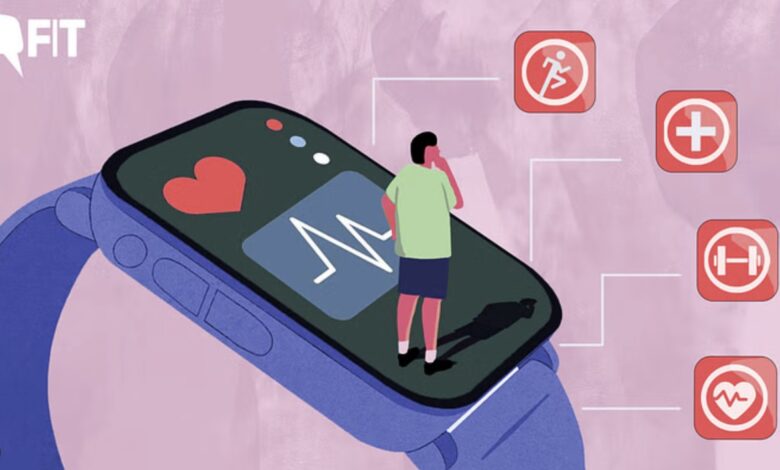
The Impact of Wearable Health Tech on Spain’s healthcare system is reshaping how medical services are delivered and managed. From smartwatches that monitor vital signs to advanced devices tracking chronic conditions, wearable technology empowers patients and healthcare providers to achieve better outcomes. By enabling real-time data collection and analysis, wearable health tech enhances decision-making and preventive care, transforming the country’s healthcare landscape.
As Spain embraces digital health solutions, the Impact of Wearable Health Tech is becoming increasingly evident. These devices not only improve individual health management but also contribute to system-wide efficiency. By reducing hospital visits, enhancing early detection, and promoting wellness, wearable health tech is playing a vital role in building a more sustainable and patient-centered healthcare ecosystem in Spain.
Read More: The Impact of Wearable Health Tech on Spain’s Healthcare System
The Growth of Wearable Health Tech in Spain
The growing adoption of wearable devices demonstrates the profound Impact of Wearable Health Tech on Spain’s healthcare system.
From fitness trackers to clinical-grade wearables, Spain has seen a surge in demand for health-focused technology. Factors such as rising health awareness, advancements in technology, and supportive government policies are driving this growth. These devices have moved beyond personal fitness to play a pivotal role in professional healthcare settings.
How Wearable Tech Enhances Patient Monitoring in Spain
The Impact of Wearable Health Tech is particularly significant in improving patient monitoring, allowing continuous data collection.
Devices like smartwatches and biosensors monitor vital signs, such as heart rate, blood pressure, and oxygen levels. In Spain, healthcare providers use this data to assess patient conditions remotely, reducing the need for frequent in-person visits and enabling timely interventions.
Wearable Tech in Chronic Disease Management
Chronic disease management highlights the transformative Impact of Wearable Health Tech in Spain, improving outcomes for patients with long-term conditions.
Devices designed for diabetes, hypertension, and heart disease provide real-time monitoring and alerts. Spanish healthcare systems integrate these technologies to ensure better disease control and reduce hospitalization rates, significantly enhancing patient quality of life.
How Wearable Tech Supports Preventive Healthcare
Preventive care showcases another dimension of the Impact of Wearable Health Tech, emphasizing early detection and intervention.
Wearables detect irregularities in vital signs, prompting users to seek medical attention before conditions worsen. This proactive approach reduces healthcare costs and aligns with Spain’s focus on creating a sustainable healthcare model.
The Role of AI in Wearable Health Tech
Artificial intelligence amplifies the Impact of Wearable Health Tech by analyzing complex data and providing actionable insights.
AI-powered wearables in Spain offer predictive analytics, identifying potential health risks based on user data. This technology supports both patients and healthcare professionals in making informed decisions, elevating the standard of care.
Wearables in Telemedicine and Remote Care
Telemedicine integration exemplifies the growing Impact of Wearable Health Tech on Spain’s healthcare system.
Wearables enable seamless communication between patients and doctors, sharing critical data in real-time. This facilitates remote consultations, making healthcare more accessible, especially for rural areas, while maintaining a high standard of care.
How Wearable Health Tech Reduces Healthcare Costs
The cost-saving Impact of Wearable Health Tech is evident in Spain’s efforts to optimize healthcare resources.
By minimizing hospital admissions and enabling remote monitoring, wearables reduce the financial burden on healthcare systems. These efficiencies ensure that resources are allocated to critical cases, improving overall healthcare delivery.
Wearables for Post-Surgery Recovery in Spain
Post-surgery recovery is another area where the Impact of Wearable Health Tech is improving outcomes in Spain.
Patients recovering from surgery use wearables to monitor healing progress and detect complications early. This reduces the need for extended hospital stays, ensuring a smoother recovery process and alleviating pressure on healthcare facilities.
Wearable Tech and Mental Health Monitoring
The Impact of Wearable Health Tech extends to mental health, offering tools for stress and emotional well-being management.
Devices with features like heart rate variability tracking and guided breathing exercises support mental health interventions. Spanish mental health professionals increasingly incorporate these tools into therapy, promoting holistic care.
Challenges in Wearable Health Tech Adoption
Despite its advantages, challenges remain in realizing the full Impact of Wearable Health Tech in Spain.
Issues like data privacy, device affordability, and interoperability with existing healthcare systems hinder widespread adoption. Addressing these concerns is essential to unlocking the full potential of wearable technology.
Wearables and the Future of Pediatric Healthcare
Pediatrics highlights a unique Impact of Wearable Health Tech, offering tailored solutions for monitoring children’s health.
Wearable devices designed for children track vital signs and developmental milestones. In Spain, pediatricians use these tools to ensure timely interventions, enhancing outcomes for younger patients.
Wearable Tech and Sports Medicine in Spain
Sports medicine showcases the innovative Impact of Wearable Health Tech, helping athletes optimize performance and recover effectively.
Wearable devices monitor physical activity, track recovery metrics, and prevent injuries. Spanish sports teams and medical professionals integrate these technologies to support athletes’ health and performance goals.
The Role of Government Policies in Promoting Wearables
Government policies play a crucial role in amplifying the Impact of Wearable Health Tech in Spain.
Initiatives supporting digital health and technology adoption create an environment for wearable innovation. Subsidies and public-private partnerships ensure that wearable technology is accessible and affordable for broader populations.
The Integration of Wearables with Spain’s Healthcare Infrastructure
The seamless integration of wearables demonstrates the systemic Impact of Wearable Health Tech in Spain’s healthcare system.
Hospitals and clinics in Spain increasingly incorporate wearable data into electronic health records. This ensures continuity of care, allowing healthcare providers to make data-driven decisions and improve patient outcomes.
How Wearables Empower Patients in Spain
The Impact of Wearable Health Tech on patient empowerment is profound, promoting active participation in health management.
Wearables provide users with real-time insights into their health, fostering awareness and responsibility. In Spain, this shift towards self-care reduces dependency on healthcare systems and enhances overall well-being.
Wearables and Elderly Care in Spain
Elderly care highlights the significant Impact of Wearable Health Tech, offering solutions tailored to aging populations in Spain.
Wearable devices with fall detection and emergency alert features ensure safety and independence for elderly individuals. These technologies improve quality of life and ease caregiving responsibilities for families and healthcare providers.
Future Trends in Wearable Health Tech in Spain
Emerging trends showcase the evolving Impact of Wearable Health Tech, pointing to a promising future for Spain’s healthcare system.
Advancements in AI, biosensors, and non-invasive monitoring devices are expanding the capabilities of wearable technology. These innovations promise to address existing challenges and enhance the integration of wearables into mainstream healthcare.
Read More: The Impact of Wearable Health Tech on Spain’s Healthcare System
Conclusion
The Impact of Wearable Health Tech on Spain’s healthcare system is both transformative and far-reaching. By enhancing patient monitoring, reducing costs, and supporting preventive care, wearable technology is redefining healthcare delivery. The integration of AI, telemedicine, and personalized solutions underscores its potential to revolutionize medical services across the country.
As Spain continues to invest in wearable health tech, the benefits will extend beyond patients to create a more sustainable and efficient healthcare system. By addressing challenges and fostering innovation, wearable technology is set to play an even more significant role in shaping the future of healthcare in Spain.
FAQs
1. How are wearable devices impacting healthcare in Spain?
Wearables improve patient monitoring, enable preventive care, and reduce healthcare costs by promoting efficient resource allocation.
2. What role does AI play in wearable health tech?
AI enhances wearable functionality by analyzing data and providing predictive insights, improving patient outcomes and decision-making.
3. How do wearables support elderly care in Spain?
Wearables with fall detection and emergency alerts ensure safety, independence, and improved quality of life for elderly individuals.
4. What challenges affect wearable tech adoption in Spain?
Challenges include data privacy concerns, high device costs, and integration issues with existing healthcare systems.
5. What is the future of wearable health tech in Spain?
Future advancements include AI-driven solutions, non-invasive monitoring devices, and seamless integration with healthcare infrastructure.











